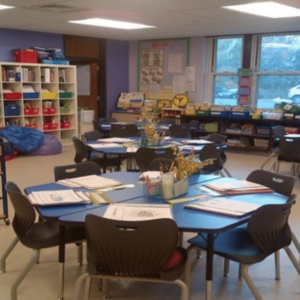
Structured Literacy for Every SLP
$22.00
90 MINUTES (0.15 ASHA CEUs)
Course Type: Live Webinar – 1 1/2 hours
ASHA Course Code: Diversity Equity and Inclusion – 7030
Literacy and reading instruction are uniquely poised at the crossroads of language development, a child’s ability to initiate self-learning, and the academic needs of the classroom. So how do speech language pathologists effectively advance both reading skills and communication goals?
Join Dr. Elsa Cardenas-Hagan as she shares how every SLP can support literacy development and ensure that the needs of diverse learners are met. Structured Literacy is a comprehensive, evidence-based approach to literacy instruction that encompasses key components for teaching literacy, including phonological awareness, phonics, fluency, vocabulary, and comprehension.
Additional Information
| Population | School Age |
|---|---|
| Duration | 1.5 hours |
| Credit | .15 Continuing Education Units |
| Topics | Diversity, Equity, & Inclusion (DEI), Exp/Rec Language |
| Format | Video |
Dr. Elsa Cardenas-Hagan is a bilingual speech and language pathologist, a certified academic language therapist, and a qualified instructor. She is the President of Valley Speech Language and Learning Center in Brownsville, Texas and a Research Associate at the University of Houston, Texas Institute for Measurement, Evaluation and Statistics. Elsa has spent the last 25 years working on national research projects funded by the National Institutes for Child Health and Human Development and the Institute for Education Sciences related to the oracy and literacy development of bilingual students. Her book, Literacy Foundations for English Learners describes the research to practice guidelines that every educator should understand. Elsa currently serves as Chairperson of the National Joint Committee on Learning Disabilities.
Financial: Dr. Cardenas-Hagan received payment for this presentation.
Non-Financial:
The author does not have any nonfinancial relationships to disclose.
Structured Literacy is a comprehensive approach to literacy. Two meta-analyses have been conducted in the United State to support evidence-based literacy instruction. The National Literacy Panel Report (2000) and the National Literacy Panel Report for Language Minority Children and Youth (2006) both describe key components for teaching literacy. The necessary components include phonological awareness, phonics, fluency, vocabulary and comprehension. The literacy components are based upon intact language skills. Every SLP can support the development of literacy by connecting language skills towards literacy development. This session will describe how SLPs can support literacy development and ensure that the needs of diverse learners are also met. The cross-linguistic connections for students who are multilingual learners will be described. Modeling of effective practices will be included and strategies for implementation in schools will be discussed.
This session will describe the meta-analyses for the development of literacy skills. SLPs will learn the key components of literacy development. They will also learn how they can support literacy development by understanding the connections between language and literacy skills. Participants will learn strategies for incorporating literacy skills within their therapeutic sessions. Cross-linguistic connections will also be described and modeled, as many SLPs may provide services to multilingual learners. SLPs are language experts and can make significant contributions to literacy development among their students. This session will provide practical approaches for the implementation of literacy skills within the SLP’s therapeutic sessions.
Participants will be able to:
• List 3 key components of literacy development among children.
• Describe the relationship between phonological awareness skills and literacy skills
• Describe the relationship between effective vocabulary development and the development of reading comprehension.
• Identify cross-linguistic transfer opportunities among students who are bilingual.
• Describe 2 evidence-based methods for addressing literacy skills in the therapeutic setting.
Time-Ordered Agenda
10 minutes – Introduction
10 minutes – Research on Literacy Development
10 minutes – Connections between language and key literacy components
15 minutes – Cross-linguistic transfer for multilinguals
10 minutes – Break
05 minutes – Demonstration of phonological awareness strategies incorporating language components
10 minutes – Demonstration of phonics and vocabulary strategies for SLPs
10 minutes – Demonstration of eight effective reading comprehension strategies within a lesson
10 minutes – Moderated question and answer
Need CEUs?

 Share
Share
 Tweet
Tweet
 LinkedIn
LinkedIn
 Pin
Pin
 Email
Email




